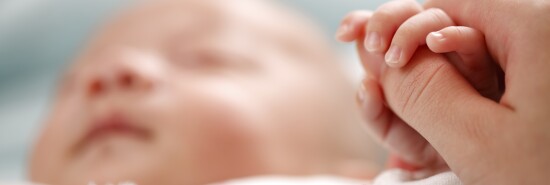
For me, the Texas abortion controversy is personal
Keara Burke
Video Embed
As a mother who was also given an adverse prenatal diagnosis of trisomy 18, I read with great sadness the story of Texas mother Kate Cox.
I know something of what Kate has experienced. At a routine 20-week ultrasound, I was unexpectedly told, “There are cysts showing up on the baby’s brain. Three plexus cysts, which could be nothing or could be something. And — it’s a boy!”
SHADOW OF DOUBT: HOW 2020 ELECTION CHALLENGES IN ARIZONA AND GEORGIA ENDED
That was incredibly difficult to process. At the time, my husband and I had four young daughters, and we were praying that this new baby might just be a boy. Informed that I had multiple markers for trisomy 18, I was instructed to come back the next day for further genetic testing.
The genetic counselor confirmed our fears: a positive diagnosis of Edwards syndrome, also known as trisomy 18, the same diagnosis received by Kate Cox, the mother at the center of a legal battle over Texas’s abortion laws. A severe genetic condition that results in multiple birth defects and significant health complications, trisomy 18 is almost always life-limiting for a child diagnosed with it, although there are some instances of long-term survival, such as former Sen. Rick Santorum’s daughter, Bella.
Like the Cox family, we were offered an abortion. Knowing you are going to lose your baby shortly after birth is emotionally debilitating. It was, in fact, devastating. But my husband, Rory, and I knew instinctively that decision would only compound our anguish.
At one high-level ultrasound appointment, as the attending technician scanned my belly with the wand, she gently noted, “There’s your baby just doing his thing. And you are doing your thing. He doesn’t even know he’s sick.” And that’s when we surrendered control. We aligned ourselves and our unborn baby with nature as I carried him to term, allowing him to do things his way, whatever that may be.
And once we made it clear to doctors that we would not consider termination, we were given hope: We were told about a program called perinatal hospice. It had everything we needed: assurance of a safe delivery for me, preservation of my future fertility, palliative care for our son so that he would never feel discomfort or pain, and wrap-around support services for our family.
Perinatal hospice works similarly to adult hospice. Parents and other family members are allowed personally to care for their child as long as they are able. Intense, individual attention is given by the hospice team both during the pregnancy and after the birth of the baby. Bereavement counseling is offered after the baby passes.
When I read stories such as that of Kate Cox, it saddens me that mothers given a life-limiting diagnosis for their child are not told about perinatal hospice more often. Even more saddening are speculation that “you might never have another baby again,” the suggestions your child will die “gasping for breath” or “writhing in pain,” or warnings that “your baby could die any day.”
Our son, Rory Jerome, was born weighing in at just over 5 pounds. His big sisters were there to sing him “Happy Birthday” and gave him his first bath. We spent three days in the hospital receiving care from the palliative care team. Nurses would come visit us when their shifts finished to see if we needed help feeding Rory or changing his diaper. We were surrounded with love and compassion. Rory was then brought home and spent the last two days of his life with family and friends. He was baptized, and sung to, and read stories by his grandparents. We were assured by our son’s hospice team that he would always be kept comfortable and that he would be given appropriate pain control. At no time did he suffer.
Rory only knew love during his short life. Not many people can say that. His name is mentioned in our house daily, weaving his existence into ours. We were able to celebrate his brief but powerful life with a funeral and bury him in our family cemetery plot. Those rituals also allowed us to grieve fully and helped my postpartum period significantly.
Kate Cox’s heartbreaking story and the social media frenzy that accompanied it are evidence that we need a much greater recognition of the perinatal hospice movement’s existence. Women, and their unborn babies with special needs, deserve to be empowered by receiving all the necessary information on all their options at the time of diagnosis.
CLICK HERE TO READ MORE FROM THE WASHINGTON EXAMINER
My husband and I have started an organization, Rory’s Way, for expectant parents who learn of life-limiting conditions for their babies. We offer personal, hands-on support and accompaniment and help to connect families with perinatal hospice programs, a low-cost option most always covered by insurance. In the United States, we are fortunate; there are multiple perinatal hospice programs throughout the country.
Through all the suffering of having a child who is born dying, we know firsthand that peace is possible on the other side. That was Rory’s gift to us all.
Keara Burke is the founder of Rory’s Way.
